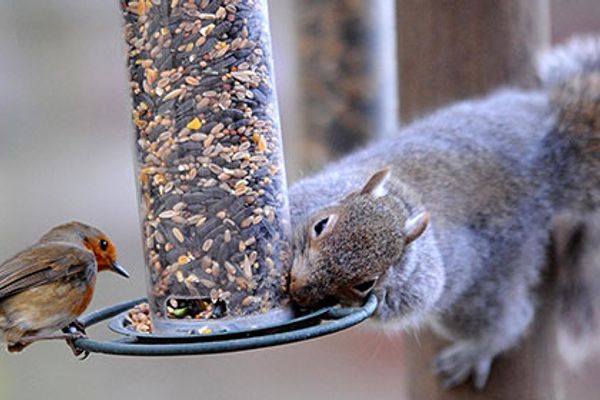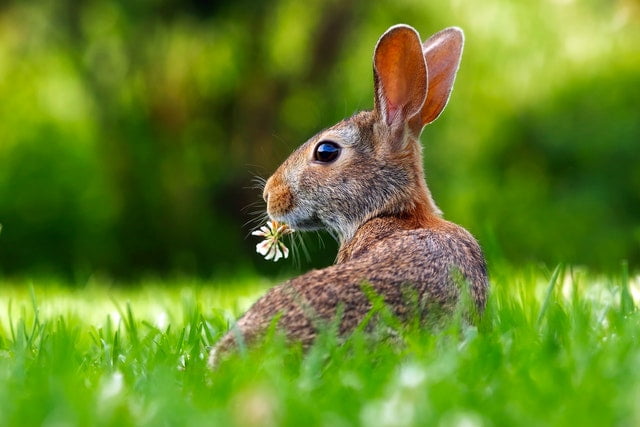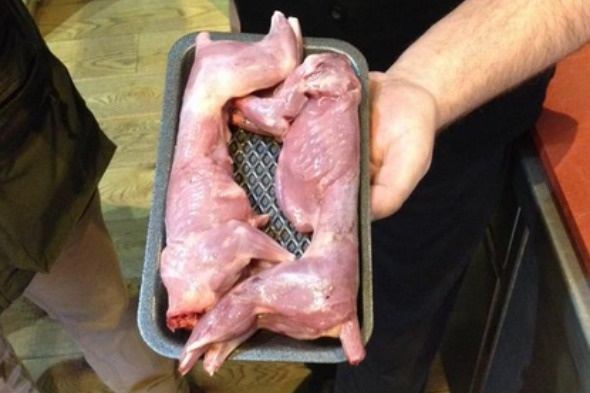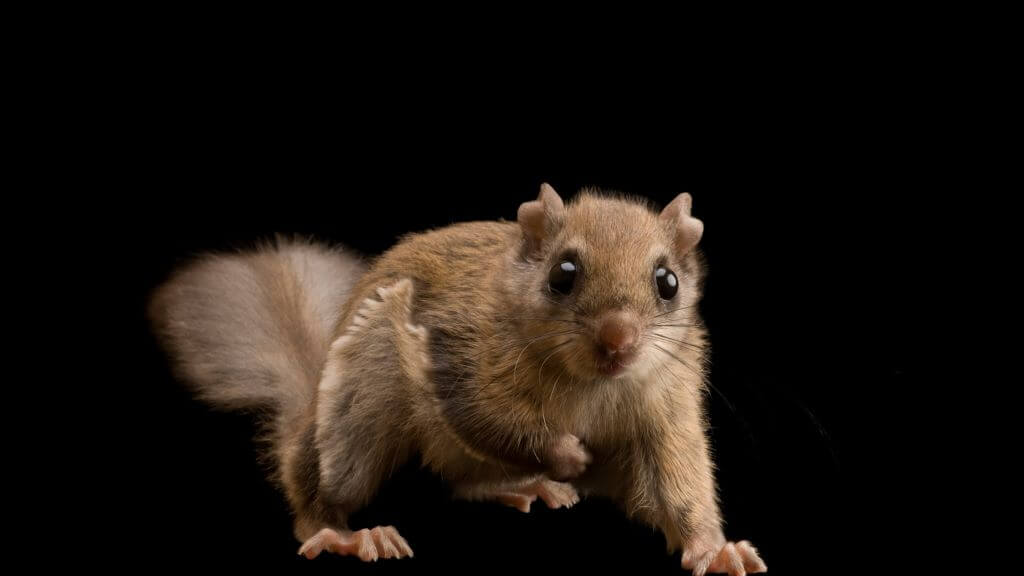Koi fish are a popular addition to outdoor ponds and water gardens. These colorful fish are known for their beauty and peaceful nature. However, many people are unsure about what to feed their koi fish. In this article, we will explore the question: What do koi fish eat?
Koi fish are omnivores, meaning they eat both plant and animal matter. A balanced diet for koi fish should include a mix of both. Some common foods for koi fish include pellets, vegetables, and live or frozen insects. It is important to provide a varied diet to ensure that the fish receive all the necessary nutrients.
Younger fish may require smaller pellets or softer foods, while larger fish can handle larger pellets or even whole vegetables. It is also important to avoid overfeeding, as this can lead to health problems for the fish and poor water quality in the pond.
Understanding Koi Fish
Koi fish, also known as Nishikigoi, are a popular decorative fish species that are often kept in outdoor ponds or aquariums. They are a type of carp, specifically the Amur carp, and are known for their vibrant colors and patterns.
When it comes to feeding koi fish, it’s important to understand their dietary needs. Koi fish are omnivores, which means they eat both plant and animal matter. In the wild, they feed on insects, crustaceans, and plants.
In a pond or aquarium setting, koi fish can be fed a variety of foods including pellets, flakes, and live or frozen foods. It’s important to choose a high-quality fish food that is specifically formulated for koi fish to ensure they get all the necessary nutrients.
Koi fish also have a voracious appetite and can quickly overeat, leading to health problems. It’s important to monitor their feeding and only give them what they can consume in a few minutes.
In addition to their diet, it’s important to maintain a clean and healthy environment for koi fish. This includes regular water changes, proper filtration, and ensuring the pond or aquarium is not overcrowded.
Overall, understanding the dietary and environmental needs of koi fish is crucial for their health and longevity. By providing them with a balanced diet and a clean living space, you can enjoy these beautiful fish in your water garden or aquarium for years to come.
Koi Fish Diet Basics
Koi fish are omnivores, which means they eat both plants and animals. In the wild, they feed on a variety of foods such as insects, crustaceans, and algae. However, in captivity, their diet should be carefully monitored to ensure they receive a balanced diet that meets their nutritional needs.
A balanced diet for koi fish should consist of protein, fat, carbohydrates, fiber, vitamins, and minerals. These nutrients are essential for their growth, immunity, and overall health. A well-balanced diet can also enhance the color and pattern of their scales.
Protein is an important nutrient for koi fish as it helps in muscle development and repair. A good quality koi food should contain at least 30% protein. Fat is also an essential nutrient, but it should be provided in moderation as excess fat can lead to obesity and other health problems. Carbohydrates provide energy to the fish, while fiber aids in digestion.
Vitamins and minerals are also important for koi fish as they play a vital role in maintaining their health and well-being. Some of the essential vitamins for koi fish include Vitamin A, B, C, and D, while minerals such as calcium, phosphorus, and magnesium are also important.
It is important to note that overfeeding koi fish can lead to health problems such as obesity and poor water quality. Therefore, it is recommended to feed them small portions several times a day instead of one large meal. It is also important to choose a high-quality koi food that provides all the necessary nutrients in the right proportions.
In summary, a well-balanced diet is essential for the health and well-being of koi fish. A good quality koi food that contains protein, fat, carbohydrates, fiber, vitamins, and minerals in the right proportions should be provided to ensure their growth, immunity, and overall health.
Natural Diet of Koi Fish
Koi fish are omnivorous, meaning they eat both plants and animals. In the wild, their natural diet consists of a variety of food sources such as insects, worms, crustaceans, and larvae. They also consume seeds and plant matter found in their habitat.
Koi fish are bottom feeders, which means they tend to scavenge for food at the bottom of the water body. They consume algae and other vegetation along with small animals such as snails and small fish.
In captivity, koi fish can be fed a variety of live foods such as bloodworms, brine shrimp, and daphnia. However, it is important to note that live food should be fed in moderation as it can lead to overfeeding and poor water quality.
To ensure a well-balanced natural diet for koi fish, high-quality fish food should be supplemented with natural food sources such as vegetables and fruits. Some examples include lettuce, spinach, peas, and oranges.
Overall, providing a natural diet for koi fish is essential for their growth and overall health. It is important to ensure a balanced diet that includes a variety of food sources and is not solely dependent on commercial fish food.
| Natural Food Sources |
|---|
| Insects |
| Worms |
| Algae |
| Larvae |
| Crustaceans |
| Seeds |
| Plant Matter |
| Vegetation |
| Animals |
Commercial Koi Fish Food
Koi fish are omnivores, which means they eat both plant and animal matter. They require a balanced diet to maintain good health and vibrant colors. Commercial koi fish food is readily available and is designed to meet the nutritional needs of koi fish.
Most commercial koi fish food comes in the form of pellets. These pellets are made from a variety of ingredients, including fish meal, wheat germ, shrimp meal, herring meal, anchovy meal, soybean meal, and whitefish.
The quality of commercial koi fish food varies widely, with some brands offering low-quality options that may not provide all the necessary nutrients. It is important to choose a high-quality koi fish food that contains a balanced mix of protein, fat, and fiber.
Some commercial koi fish food may also contain additional ingredients, such as spirulina or beta-carotene, to enhance the fish’s coloration.
When feeding your koi fish, it is important to follow the manufacturer’s instructions and not overfeed. Overfeeding can lead to health problems and poor water quality in your pond or tank.
In addition to pellets, some koi fish owners also feed them fish flakes or freeze-dried shrimp. However, these should be used as occasional treats rather than a staple part of their diet.
Overall, commercial koi fish food is a convenient and effective way to ensure your koi fish receive a balanced diet that meets their nutritional needs.
Feeding Koi Fish Fruits and Vegetables
Koi fish are omnivores, which means they eat both plant and animal-based food. While commercial koi food is readily available, providing fruits and vegetables can be a healthy addition to their diet. Here are some options to consider:
Fruits
- Orange slices: Koi fish love oranges! They contain vitamin C, which is essential for their immune system. Remove any seeds before feeding.
- Watermelon: Koi fish enjoy watermelon as a treat. It also contains vitamins A and C, as well as potassium.
- Peaches: Koi fish can eat peeled and pitted peaches, which contain vitamin C and fiber.
- Apples: Koi fish can eat sliced apples, which are a good source of fiber. Remove any seeds and core before feeding.
Vegetables
- Lettuce: Koi fish can eat lettuce, but it should be given in moderation as it has a high water content. Romaine lettuce is a good option.
- Peas: Koi fish can eat fresh or frozen peas, which are a good source of protein and fiber.
- Corn: Koi fish can eat cooked corn, which is a good source of carbohydrates and fiber.
- Rice: Koi fish can eat cooked rice, which is a good source of carbohydrates.
It’s important to remember that fruits and vegetables should not make up the majority of a koi fish’s diet. They should be given as treats and should not replace commercial koi food. Also, avoid feeding them anything that is toxic to them, such as avocado or onion.
Feeding Koi Fish Human Food
Koi fish are omnivores and can eat a variety of foods, including human food. However, it is important to be mindful of what human food you feed them, as some foods can be harmful to their health. Here are some guidelines to follow when feeding koi fish human food:
- Bread: While koi fish may eat bread, it is not a nutritious food for them. Bread can cause digestive issues and lead to malnutrition if fed in large quantities.
- White Bread: White bread is not a recommended food for koi fish. It contains high levels of carbohydrates and low levels of nutrients, which can lead to health problems in the long run.
- Cereal: Some types of cereal, such as unsweetened Cheerios, can be fed to koi fish in small quantities. However, it is important to avoid cereals with high sugar content, as this can lead to obesity and other health issues.
- Chicken: Cooked chicken can be a good source of protein for koi fish. However, it is important to remove any bones and skin before feeding it to them.
- Cooked Rice: Cooked rice can be fed to koi fish in small amounts. It is a good source of carbohydrates and can help supplement their diet.
- Human Food: While some human foods can be fed to koi fish, it is important to avoid foods that are high in fat, salt, or sugar. Some examples of human foods that are safe for koi fish include peas, lettuce, and watermelon.
In summary, while koi fish can eat human food, it is important to be mindful of what you feed them. Stick to nutritious foods that can supplement their diet, and avoid foods that can be harmful to their health in the long run.
Additional Food Sources for Koi Fish
Koi fish are omnivores and can consume a variety of food sources. Apart from commercial koi food, koi fish can also be fed with additional food sources such as:
Shrimp
Koi fish can eat shrimp, but it should be given in moderation. Shrimp is a good source of protein and can be given as a treat or a supplement to their regular diet.
Goldfish
Koi fish can eat goldfish, but it is not recommended to feed them regularly. Goldfish are high in fat and can cause health problems if fed in excess.
Earthworms
Earthworms are a good source of protein and can be fed to koi fish. However, they should be given in moderation as they can cause digestive problems if overfed.
Mosquito Larvae
Mosquito larvae are a natural food source for koi fish. They are high in protein and can be fed to koi fish as a supplement to their regular diet.
Bugs
Koi fish can eat bugs such as grasshoppers, crickets, and mealworms. However, they should be given in moderation as they can cause digestive problems if overfed.
Tadpoles
Tadpoles are a good source of protein and can be fed to koi fish. However, they should be given in moderation as they can cause digestive problems if overfed.
Snails
Snails are a good source of protein and can be fed to koi fish. However, they should be given in moderation as they can cause digestive problems if overfed.
Crayfish
Crayfish are a good source of protein and can be fed to koi fish. However, they should be given in moderation as they can cause digestive problems if overfed.
Catfish
Catfish is a good source of protein and can be fed to koi fish. However, they should be given in moderation as they can cause digestive problems if overfed.
Bars
Bars are a good source of protein and can be fed to koi fish. However, they should be given in moderation as they can cause digestive problems if overfed.
Overall, it is important to provide a balanced and varied diet for koi fish to ensure their health and well-being.
Feeding Practices and Considerations
Feeding koi fish requires careful consideration to ensure their optimal growth and health. Here are some feeding practices and considerations to keep in mind:
- Feed high-quality food: Koi fish require a balanced diet that contains all the necessary nutrients. High-quality koi food is formulated to meet the nutritional needs of koi fish. Look for food that contains a high percentage of protein, vitamins, and minerals.
- Feed the right amount: Overfeeding can lead to poor water quality, which can cause health problems for koi fish. Feed only the amount that koi fish can consume in 5-10 minutes. If there is excess food, remove it from the pond to avoid contamination.
- Feed at the right time: Koi fish are most active during the day, so feed them during daylight hours. Avoid feeding them at night as it can lead to poor digestion.
- Consider water temperature: Koi fish’s metabolism slows down in colder water, so they require less food during winter months. In warmer water, they require more food to maintain their energy levels.
- Consider water quality: Poor water quality can affect koi fish’s appetite and digestion. Ensure that the water is clean and well-aerated to promote good health.
- Consider coloration: Koi fish’s coloration can be affected by the food they consume. Some koi food contains color enhancers that can enhance their natural coloration. However, excessive use of color enhancers can lead to unnatural coloration.
Incorporating these feeding practices and considerations can help ensure that koi fish receive the nutrition they need for improved digestion, optimal growth, and good health.
Specialized Koi Fish Foods
Koi fish are omnivores, which means they can eat both plant and animal-based foods. While they can thrive on a diet of regular fish food, specialized koi fish foods can help enhance their color, growth, and overall health.
There are several types of specialized koi fish foods available in the market. Some of the most popular ones are:
- Bloodworms: These are small, red aquatic worms that are high in protein and essential amino acids. They are a great source of nutrition for koi fish and can help enhance their color and growth.
- Brine shrimp: These tiny crustaceans are a popular food source for many aquarium fish, including koi. They are rich in protein, vitamins, and minerals, and can help improve the overall health of koi fish.
- Daphnia: Daphnia are small, freshwater crustaceans that are a great source of nutrition for koi fish. They are high in protein and essential amino acids and can help enhance the color and growth of koi fish.
- Krill: Krill are small, shrimp-like crustaceans that are a popular food source for many aquarium fish, including koi. They are rich in protein, vitamins, and minerals, and can help improve the overall health of koi fish.
- Silkworm pupae: Silkworm pupae are a popular food source for koi fish in Japan. They are high in protein and essential amino acids and can help enhance the color and growth of koi fish.
- Freeze-dried food: Freeze-dried foods are a convenient and nutritious option for feeding koi fish. They are available in a variety of forms, including bloodworms, brine shrimp, and krill.
- Frozen food: Frozen foods are another great option for feeding koi fish. They are available in a variety of forms, including bloodworms, brine shrimp, and krill.
- Spirulina algae: Spirulina algae is a blue-green algae that is rich in protein, vitamins, and minerals. It is a popular food source for many aquarium fish, including koi. It can help enhance the color and growth of koi fish and improve their overall health.
Incorporating specialized koi fish foods into their diet can help enhance the color, growth, and overall health of koi fish. However, it is important to remember that a balanced diet is key to keeping koi fish healthy and happy.
Plants in Koi Fish Diet
Koi fish are omnivorous and can eat a variety of food, including plants. Incorporating plants into their diet can provide them with essential nutrients and improve their overall health. Here are some plants that koi fish can eat:
- Hyacinths: Koi fish enjoy eating the roots and leaves of hyacinths. These plants are rich in vitamins and minerals, making them a nutritious addition to their diet.
- Water lettuce: Water lettuce is another plant that koi fish can eat. It is high in protein and contains essential amino acids that are beneficial for their growth and development.
- Duckweed: Duckweed is a small floating plant that is easy to cultivate and can be a great source of food for koi fish. It is rich in protein, carbohydrates, and essential minerals that are important for their health.
Incorporating these plants into their diet can also help improve water quality in the pond by reducing the amount of nutrients in the water. However, it is important to note that not all plants are safe for koi fish to eat. Some plants can be toxic and should be avoided. It is recommended to research and consult with experts before introducing any new plants to their diet.
In addition to plants, koi fish can also be fed commercial fish food, insects, and small crustaceans. A balanced diet that includes a variety of food sources can help ensure their overall health and well-being.
The Impact of Diet on Koi Fish Health and Longevity
Proper diet is essential for the health and longevity of koi fish. Koi fish are known for their long lifespan, and a balanced diet plays a significant role in their longevity. A well-balanced diet not only helps to maintain the health and vitality of koi fish but also enhances their natural colors and patterns.
Moisture is an important factor in the diet of koi fish. Koi fish require a diet that is high in moisture to maintain their overall health and well-being. Dry food can cause dehydration, leading to health issues such as constipation and kidney problems. Therefore, it is recommended to feed koi fish with wet or moist food.
Vitamin C is an essential nutrient for koi fish. It helps to boost their immune system and protect them from diseases. Koi fish are unable to produce vitamin C on their own, so it is important to provide them with a diet that is rich in this nutrient. Foods such as oranges, broccoli, and spinach are excellent sources of vitamin C for koi fish.
A balanced diet for koi fish should consist of a variety of foods, including pellets, vegetables, and live foods. Pellets are a staple food for koi fish and should make up the majority of their diet. Vegetables such as lettuce, peas, and carrots provide essential nutrients and fiber. Live foods such as earthworms and shrimp are also beneficial as they provide natural vitamins and minerals.
In conclusion, a well-balanced diet is crucial for the health and longevity of koi fish. A diet that is high in moisture, rich in vitamin C, and consists of a variety of foods such as pellets, vegetables, and live foods can help to maintain the health and vitality of koi fish. By providing a proper diet, koi fish can live a long and healthy life.
Frequently Asked Questions
What is the best food for promoting Koi growth?
The best food for promoting Koi growth is high-quality pellet food that is specifically formulated for Koi. These pellets contain the right balance of protein, vitamins, and minerals to support healthy growth.
What are some premium Koi food options?
Some premium Koi food options include Hikari, Saki-Hikari, and Blue Ridge Koi food. These brands are known for their high-quality ingredients and excellent nutrition.
How often should you feed Koi fish?
Koi fish should be fed once or twice a day, depending on the temperature of the water and the season. In warmer months, Koi can be fed more often, while in cooler months, they should be fed less.
Can Koi fish eat bananas?
While Koi fish can technically eat bananas, it is not recommended. Bananas are not a natural part of their diet and can cause digestive problems.
Is it safe to feed Koi fish chicken?
No, it is not safe to feed Koi fish chicken or any other type of meat. Koi are omnivores but are not designed to digest meat. Feeding them meat can lead to health problems and even death.
What types of food should you avoid feeding Koi fish?
You should avoid feeding Koi fish bread, crackers, or any other type of processed food. These foods are not nutritious and can cause digestive problems. Additionally, you should avoid feeding Koi any food that contains high levels of fat, as this can lead to health problems.



